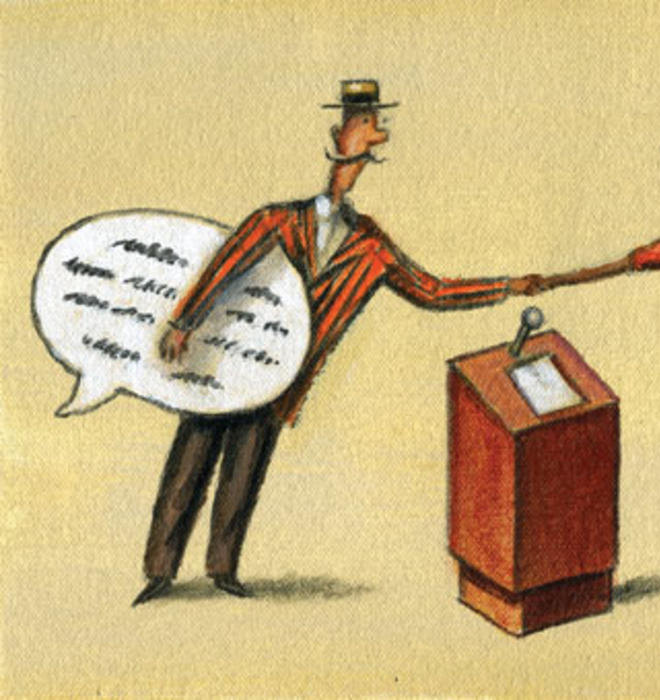
Old versus new: It’s a draw
If Princeton is This Side of Paradise, Reunions is The Great Gatsby.“Can’t repeat the past? Why of course you can!” insists F. Scott Fitzgerald ’17’s doomed hero, Jay Gatsby.
Gatsby wanted to spend eternity with his lost love, Daisy. Alumni ask only for three perfect days each spring to party like they never left college. Eventually, as for Gatsby, there comes a reckoning: a realization that you have changed, and so has Princeton.
For better or worse? That was the issue before the Whig-Cliosophic Society’s alumni Senate debate on the Friday of Reunions. The proposition in contention: “This house believes that Princeton of yesteryear is better than Princeton of today.”
Three students and one recent alumnus debated that point in Whig Hall as older alumni looked on from the audience. First up was the Whig Society, arguing for the Princeton of today. Cara Eckholm ’14, the former president of Whig-Clio, cited modern Princeton’s excellent financial aid and dizzying array of course offerings.
By contrast, she said, Princeton of yesteryear was a “system of oppression” that excluded women and minorities. “Princeton was the educational home for white, affluent males, but only for that demographic alone,” said Eckholm.
The Cliosophic Society, arguing for Princeton past, attempted to defuse that argument with a jibe. “I love the diversity of Princeton today,” said Jay Parikh ’12. “We have the sons and daughters of white professionals interacting with the sons and daughters of Hispanic and African-American professionals.”
The Princeton of yesterday, the Cliosophic speakers argued, was a place steeped in Latin classics and campus tradition. The Cane Spree was vigorously contested. Dating was less complicated. The Olympics were nude.
Today’s Princeton has lost its soul, Parikh said. Grade deflation has turned students into overly competitive automatons, and residential colleges have left them geographically segregated. “What have we done to the connections that were forged here?” he asked.
When it came time to vote, the audience cast 12 votes for the proposition that yesterday’s Princeton was better than today’s, and 12 against.
“I think today’s debate has demonstrated that it is eminently Princetonian to be dissatisfied with one’s lot and to seek to improve it,” said Sharon Simpson Jones ’93, attempting to forge a compromise during the question-and-answer period.
“Hear, hear!”
Simpson Jones continued: “Having practice in doing so on campus can only be of benefit to the wider world once everyone leaves, and goes forth, and is dissatisfied wherever they land!”
“In the nation’s service!” someone chimed in.






No responses yet